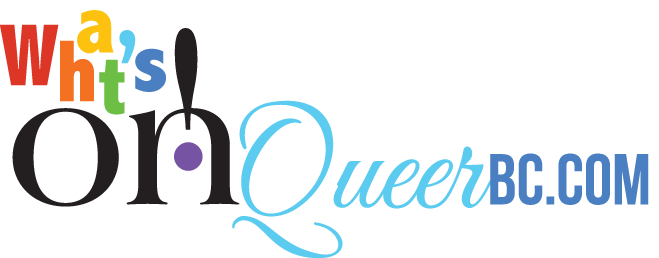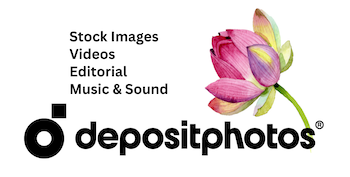Out and Proud: LGBTQ+ Athletes in Canadian Sports
The sports world has become increasingly vibrant with a focus on diversity and inclusion. Leading this transformative movement are LGBTQ+ athletes, who are courageously demanding the recognition they’ve long been denied. Their stories weave a powerful tapestry of triumphs and challenges, each one inspiring future generations to pursue their dreams with unabashed pride. The journey of LGBTQ+ Canadian athletes extends beyond personal victory; it unfolds as a transformative narrative that heralds a broader evolution within the sports community, bringing attention to the ongoing struggle for acceptance and equality.
Trailblazers and Evolution
For many years sports were dominated by heteronormative values, often excluding those who identified as LGBTQ+. Fear of discrimination and ostracism kept countless athletes in the shadows of silence. Yet, trailblazers like Canadian swimmer Mark Tewksbury began turning the tide. Mark Tewksbury won the gold medal in the 100-metre backstroke at the 1992 Summer Olympics in Barcelona. He publicly came out as gay in 1998, becoming one of Canada's first openly gay Olympic athletes.
Another pivotal figure is Quinn, a Canadian soccer player, became the first openly transgender and non-binary athlete to win an Olympic gold medal during the Tokyo 2020 Olympics, held in 2021. Quinn’s achievement stands as a powerful symbol of progress, showcasing the potential for inclusivity in international sports. Meanwhile, figure skater Brian Orser, who came out publicly in 1998, and soccer goalkeeper Erin McLeod, who has been a vocal advocate for LGBTQ+ rights, represent the breadth of diversity within Canadian sports.
Modern-Day Challenges
Even with strides made, today’s LGBTQ+ athletes still face a myriad of challenges. From navigating locker room gossip to confronting entrenched stereotypes, the journey is often fraught with emotional and psychological hurdles. These obstacles can significantly impact an athlete’s mental health and on-field performance, creating an invisible barrier many struggle to overcome. Nevertheless, hope abounds as Canadian organizations step up, implementing inclusive policies and programs that cultivate environments where athletes can feel safe and respected. By embracing inclusive practices, the sports community takes critical steps toward not only tolerating but celebrating diversity.
Inclusivity in sports goes beyond the playing field, influencing associated industries like sports betting. In Alberta, alberta sports betting landscape is evolving to adopt more inclusive practices, reflecting the broader societal shift toward diversity and equality. By embracing inclusive marketing and creating safe spaces for all participants, these industries acknowledge the growing visibility of LGBTQ+ athletes and their supporters, demonstrating that diversity can drive positive change across all facets of the sports ecosystem.
The Promise of Tomorrow
As younger generations lead the charge for inclusivity, the future of sports appears dazzlingly bright. Schools and universities in Canada are rolling out the welcome mat with inclusive sports programs that champion diversity from the get-go. Through comprehensive education, vigilant policy advocacy, and the joyous celebration of individuality, the sports landscape is gradually transforming.
It’s becoming an arena where everyone’s talent can shine, irrespective of their gender identity or sexual orientation. By nurturing a culture of acceptance, we are moving toward a vibrant future where sports serve as the ultimate playing field for self-expression and unity.
It’s Global!
While Canada has made significant strides in promoting inclusivity for LGBTQ+ athletes, other nations are also paving the way for greater representation and equality in sports. For instance, the United States has seen prominent figures like Megan Rapinoe advocating for LGBTQ+ rights alongside her athletic achievements, while openly gay athletes such as Tom Daley from the United Kingdom have used their platforms to champion inclusivity on a global scale. In New Zealand, weightlifter Laurel Hubbard made history as the first openly transgender woman to compete in the Olympics, sparking worldwide conversations about gender identity in sports. These international milestones reflect a collective movement toward a more inclusive and equitable athletic landscape, proving that progress transcends borders.
A New Chapter of Sports
The saga of LGBTQ+ Canadian athletes in mainstream sports is a riveting testament to resilience and the relentless quest for equality. As they trailblaze their way through challenges, these athletes not only craft their own destinies but also lay down vibrant paths for future stars. The sports world, indeed all of society, enriches immeasurably with their invaluable contributions.
By celebrating these athletic heroes and supporting inclusive practices, we edge closer to a world where sports punctuate the universal language of unity—celebrating every athlete, no matter who they love or who they are. This new chapter in sports history is a triumphant hymn to diversity, resilience, and the unyielding spirit that drives human achievement.
Resources
Egale Canada
Egale is Canada’s leading organization for LGBTQ+ advocacy and research. They offer extensive resources on inclusivity, including initiatives focused on sports.
Canadian Olympic Committee (COC)
The COC has publicly supported LGBTQ+ athletes and actively promotes diversity and inclusion within Canadian sports. Their Pride initiatives are noteworthy.
OutSport Toronto
OutSport Toronto is a non-profit organization that supports LGBTQ+ participation in sports and recreation across Toronto and beyond.
Link: OutSport Toronto
You Can Play Project (Canada)
This initiative aims to eliminate homophobia in sports and provide safe environments for LGBTQ+ athletes in Canada.
Link: You Can Play - Canada
PrideHouseTO
Established during the 2015 Pan Am/Parapan Am Games, PrideHouseTO fosters LGBTQ+ inclusion in sports and recreation in Canada.
Link: PrideHouse Toronto
Canadian Centre for Ethics in Sport (CCES)
CCES actively supports inclusive practices and fair play in sports, including specific policies addressing LGBTQ+ participation.







